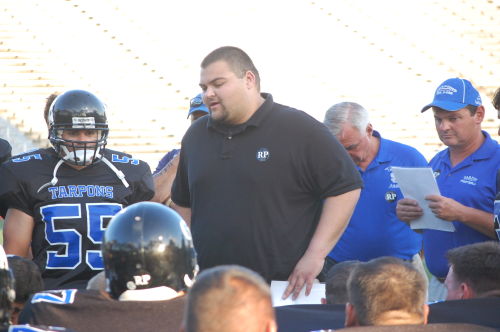
Dominance continued: SL teams take district titles
October 29, 2013
BREAKING: Coach, girlfriend, 3 others given criminal summons after Destrehan forfeitures
October 30, 2013Capital cases in Louisiana are breaking the budget of the state’s public defender system, and its chairman says things aren’t going to be better in the future.
“There is a long backlog, we have a couple of years backlog,” said Francis X. Neuner, who was appointed to the chairman’s position by Gov. Bobby Jindal.
Changes in the law – state and federal – require that greater attention be paid to mitigation.
That’s the process of gathering evidence for presentation to a jury that will better help a jury decide whether to impose death as a sentence or life in prison without parole.
“Mitigation has become a bigger issue in death penalty cases because of the evolution of defending death penalty cases,” Neuner said. “There are mitigation specialists now and mitigation specialist are a part of the team in any death penalty case as mandated by Supreme Court. It’s more a drain on the funding that we have available.”
The board has traditionally set aside $600,000 annually for expert witnesses, which also included mitigation specialists. But now that the law requires mitigation specialists in capital cases, the expense is outpacing the budgeting.
Local indigent defender boards, using money from court costs, shoulder some expense for trials.
But local court districts have had to hire mitigation specialists when they have gone into capital cases from the beginning, which puts a squeeze on them as well.
At the state level money is paid out for those doing post-conviction work.
Local district attorneys are relying less on the death penalty, Neuner said, although capital cases do emerge.
“The enlightened district attorneys realize it is better for the system from a cost standpoint and better for families to get an early mandatory life and close the case out,” Neunder said. “That’s rather than see them drag on for 17 years like the Chad Louviere case. It is costing everybody money and the family gets no closure. The Supreme Court is making it so hard to execute and to defend them the right way.”
Attorneys for Chad Louviere are not seeking exoneration for a crime he didn’t commit. They are seeking to stop what they maintain would be an execution not supported by the law.
If his case is heard by a jury it is still possible that he could be sentenced to die, although the attorneys maintain the evidence – if ever heard by a jury – would not constitute first-degree murder. Mitigating evidence, which they are presenting in their briefs, would also in their opinion convince a jury that death is not ultimately the most just punishment in the case.
While it is acknowledged that Louviere fired the weapon that killed Pamela Duplantis, the question of intent, the attorneys say, has never been adequately resolved, nor ever put before a jury.
Post-conviction relief – although expensive – has paid off in the long run for people wrongfully accused or convicted.
“We have had seven people fully exonerated off of our death row, through DNA or witnesses recanting,” Neuner said.
Attorneys say that defendants like Chad Louveire, who may indeed have taken a life, have not always done so in a way that justifies death in accordance with the law, and note that the system itself must follow the rules even if criminal defendants do not.
The Innocence Project of New Orleans, a nonprofit that works on behalf of allegedly innocent prisoners, lists these among the clients that have been freed due to wrongful conviction:
• Darrin Hill, exonterated April 12, 2012.
• Michael Williams, Nov. 18, 2011.
• Henry James, Oct. 21, 2011.
• Terrence Meyers, Glenn Davis and Larry Delmore, Sept. 24, 2010.
• Anthony Johnson, Sept. 15, 2010.
• Travis Hayes, Jan. 17, 2007.
• Allen H. Coco, Oct. 12, 2006.
• Dennis Brown, Jan. 31, 2005.
• Dan Bright, June 14, 2004.
• Earl Truvia, June 24, 2003.
• Gregory Bright, June 24, 2003.
• Dwight Labran, Dec. 10, 2001.










